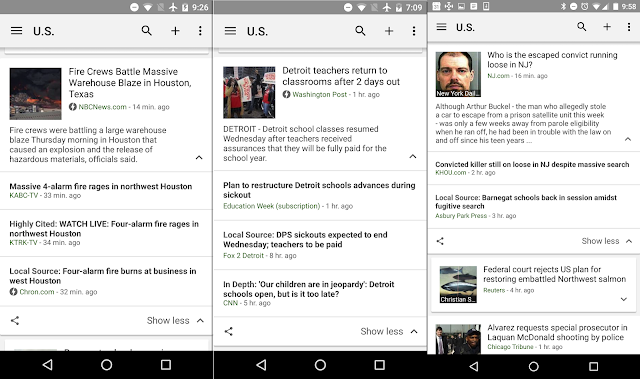Editor’s note: We invited three participants of the Next Journalism School 2015 to share some of the highlights from their visit to the Google campus in Mountain View, California. The Next Journalism School is an annual program that was set up in 2014 to nurture our next generation of journalists and equip them with the skills they need in a digital era. If you’re studying journalism in Korea and are interested in joining the next cohort, applications open here today and close on July 24, 2016.

- Virtual reality. As 360 degree technology becomes more and more accessible, Google’s tools have made it easy to utilize VR imagery in journalism for a more immersive experience.
- Google Trends show patterns in search across topics and over time, enabling a new form of storytelling based on real-time data. While most of us turn to Google Search for answers, it’s also a great tool to give journalists answers and insight into what is top of mind for people around the world.
- Accelerated Mobile Pages optimizes content for mobile phones so pages load faster, making it more compelling for people to consume content on their handheld devices. Research has shown that readers will click away from a page if it takes longer than three seconds to load. So AMP is incredibly important for engaging readers with news content, particularly in countries like Korea, where 48% of news is consumed on mobile--the highest in the world.

Along with getting first hand exposure to the many media tools available, the real highlight of our trip was meeting and speaking with Googlers who are passionate about the future of journalism. It was exciting to hear how Google nurtures innovation and innovative-thinking in their own workplace. It’s an environment where people are encouraged to try new things, with one guiding principle: focus on the user. We look forward to replicating a lot of this thinking as we return to our own day jobs, and bring some of the innovations that we learned about to our readers.






